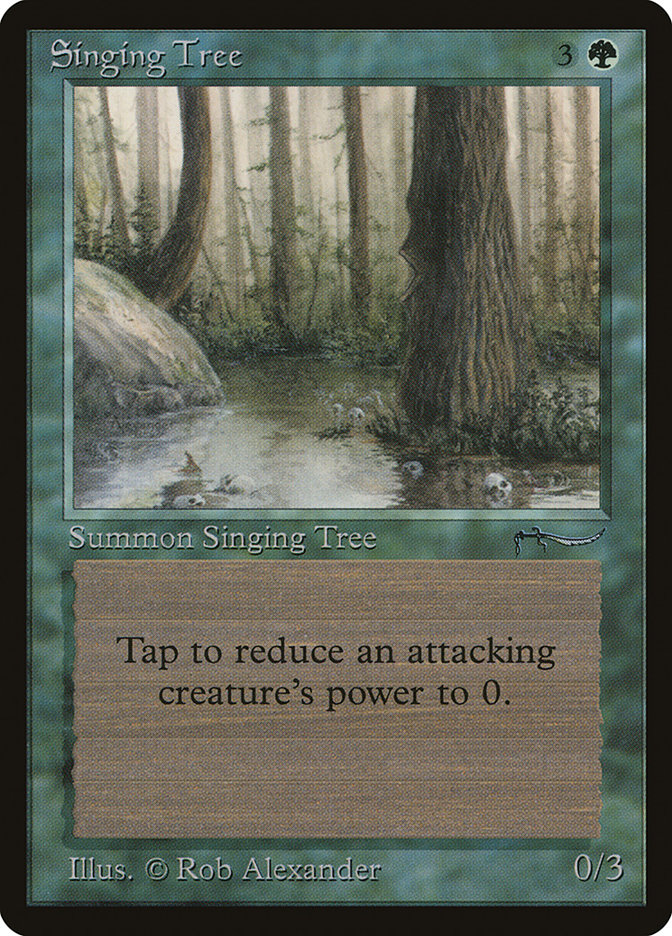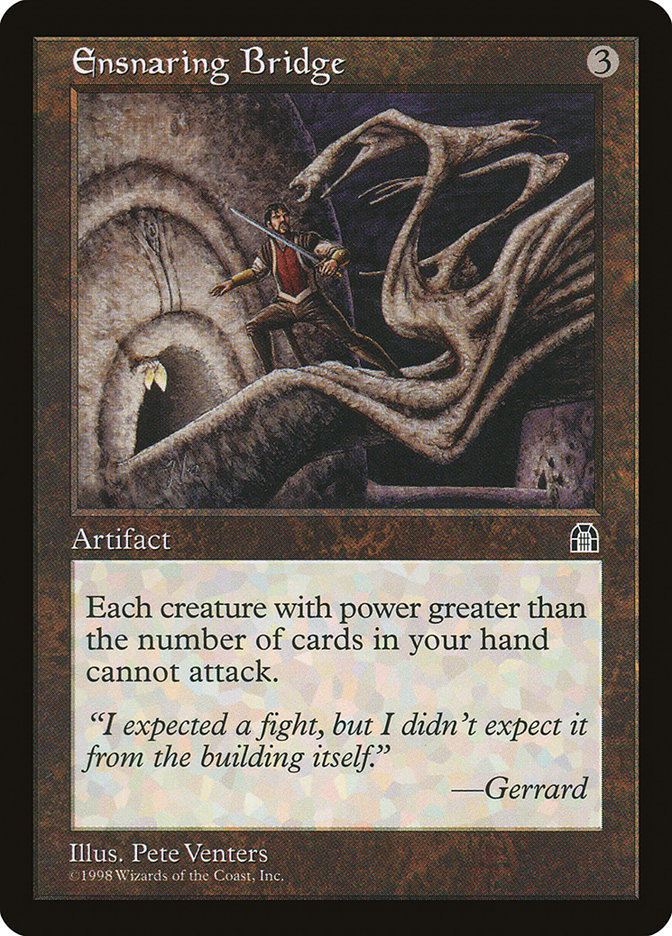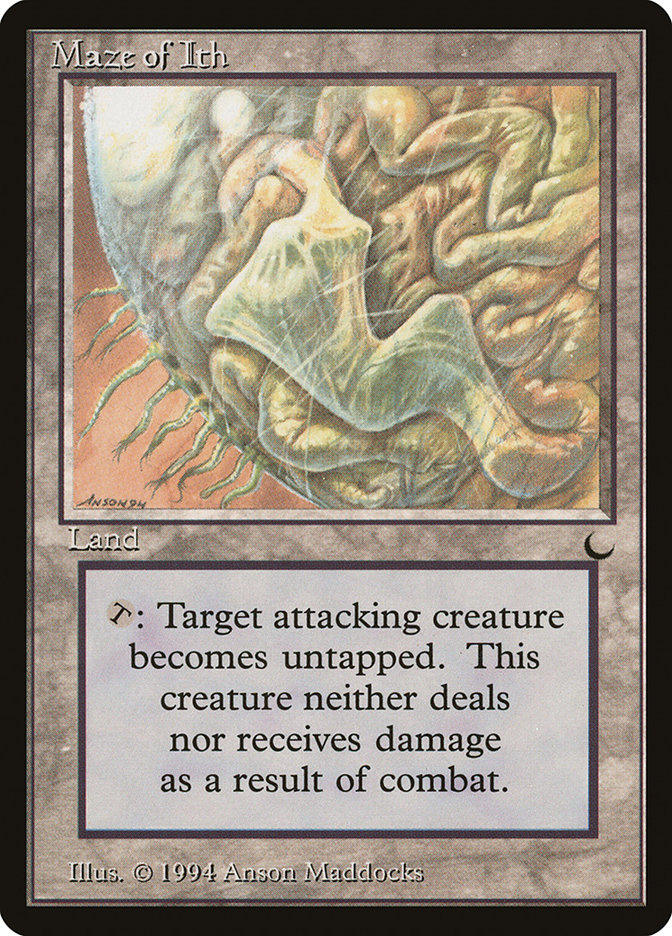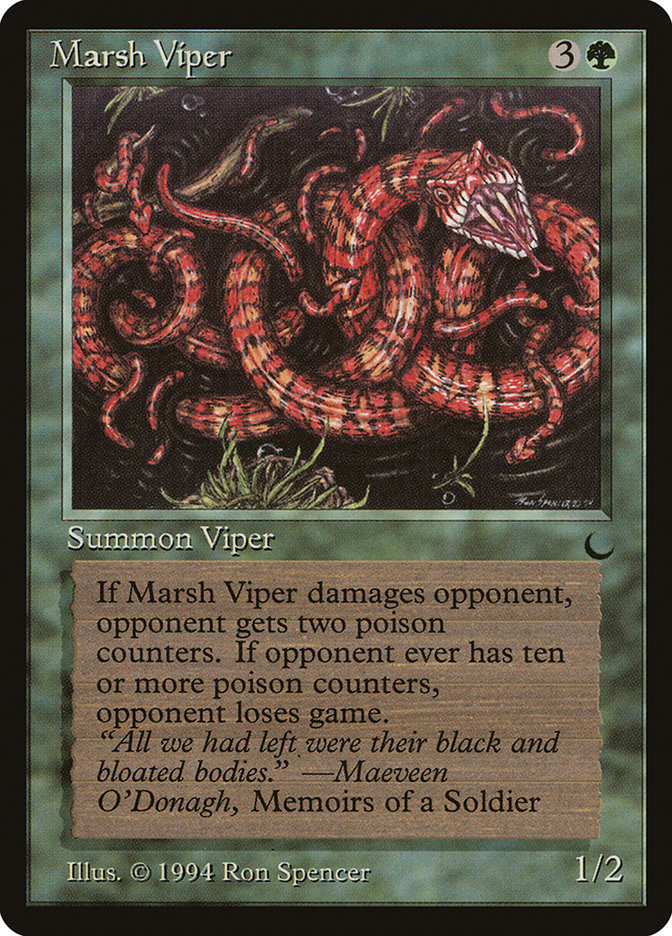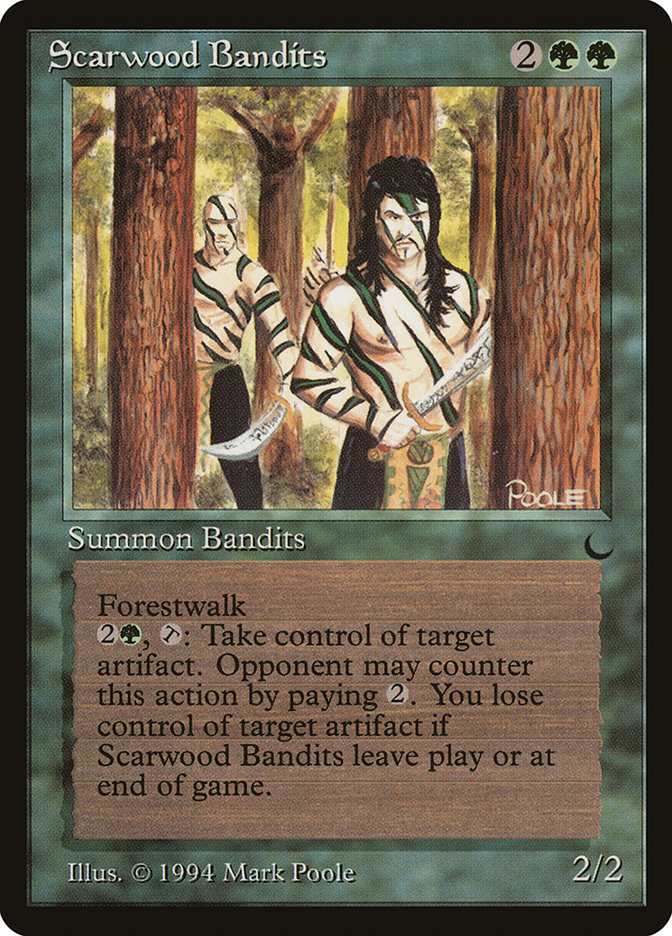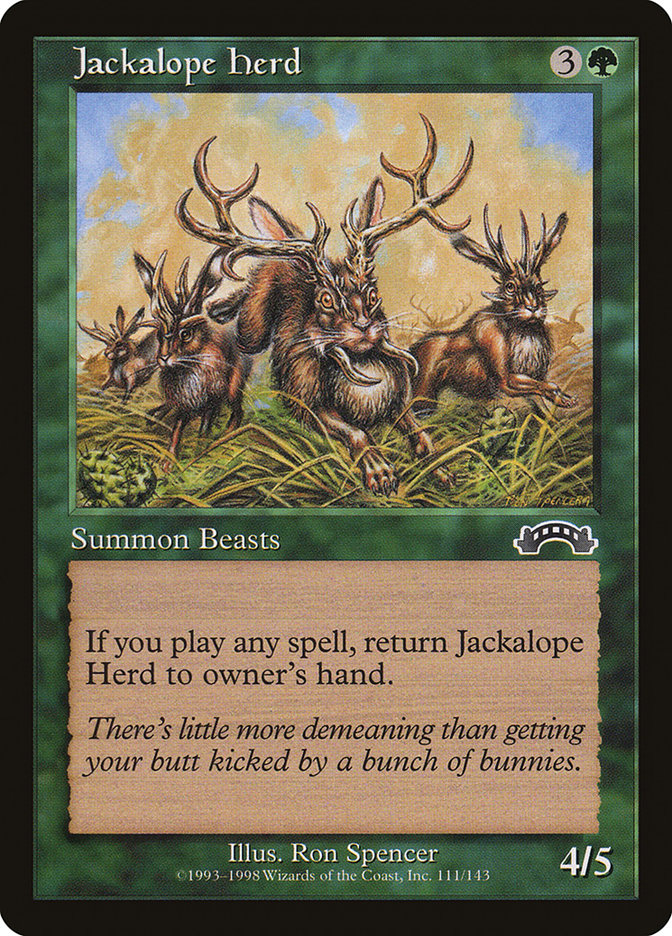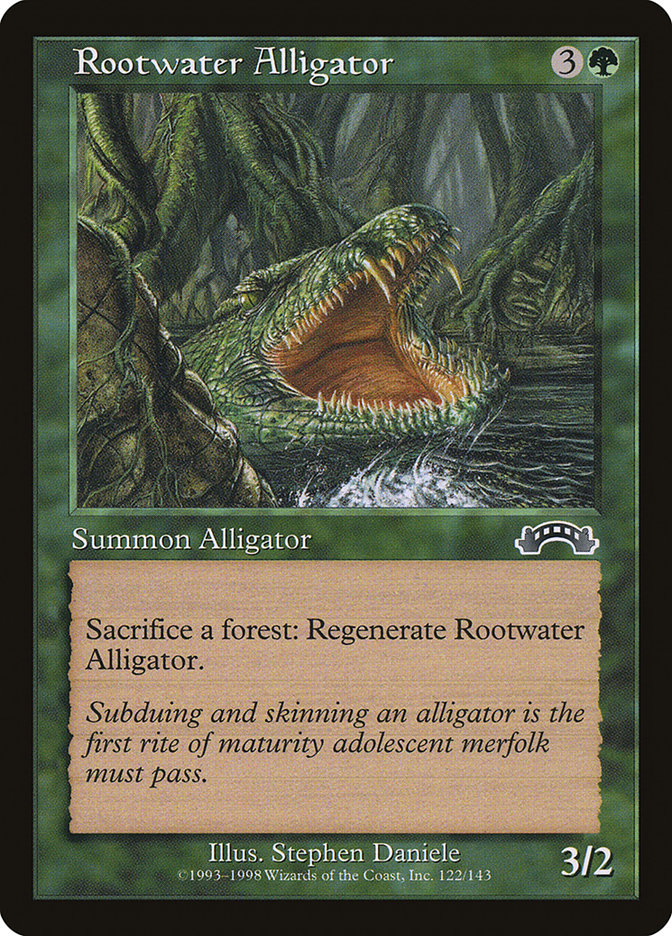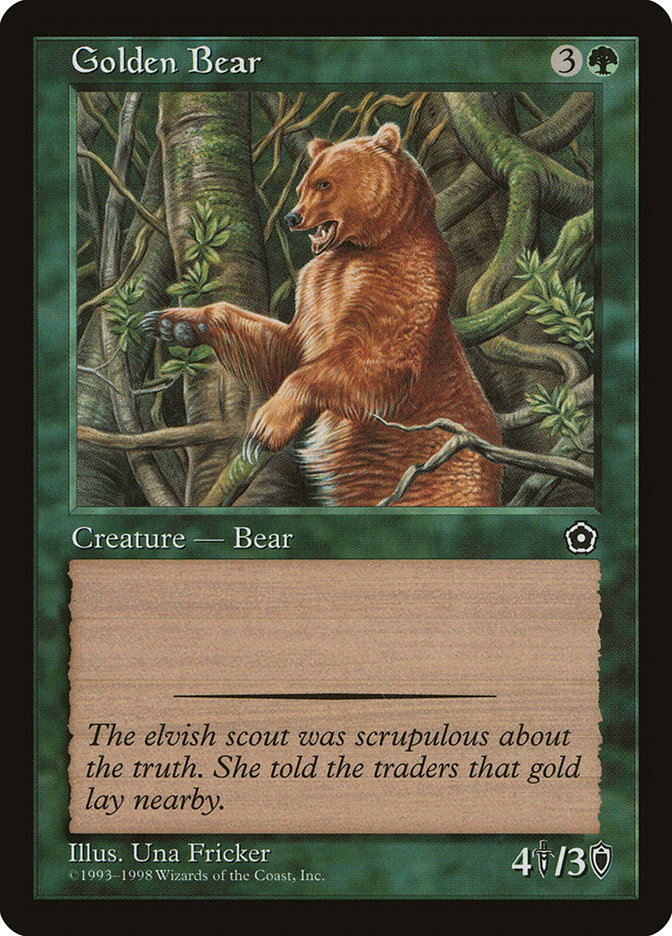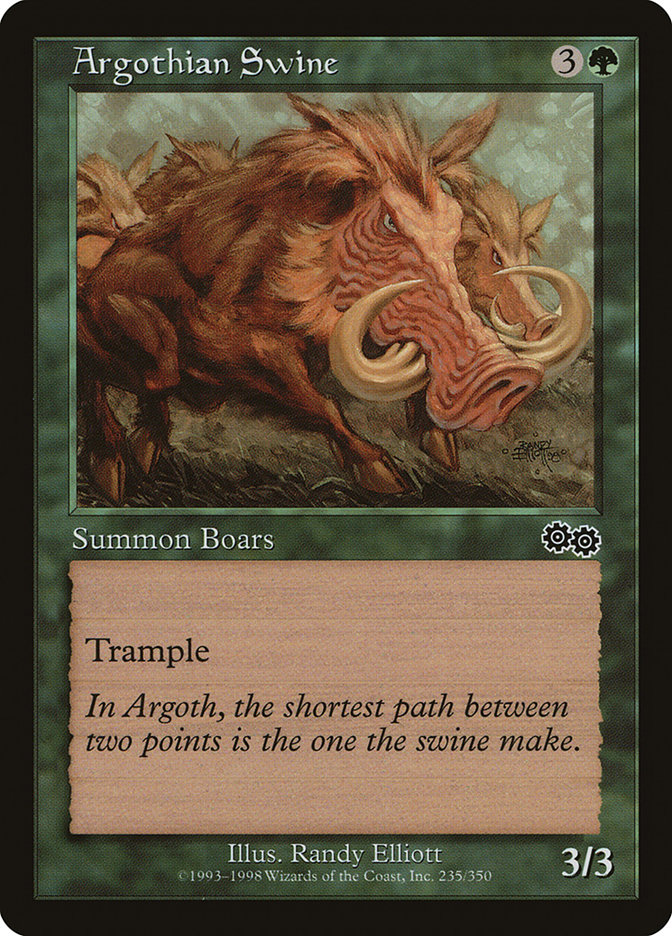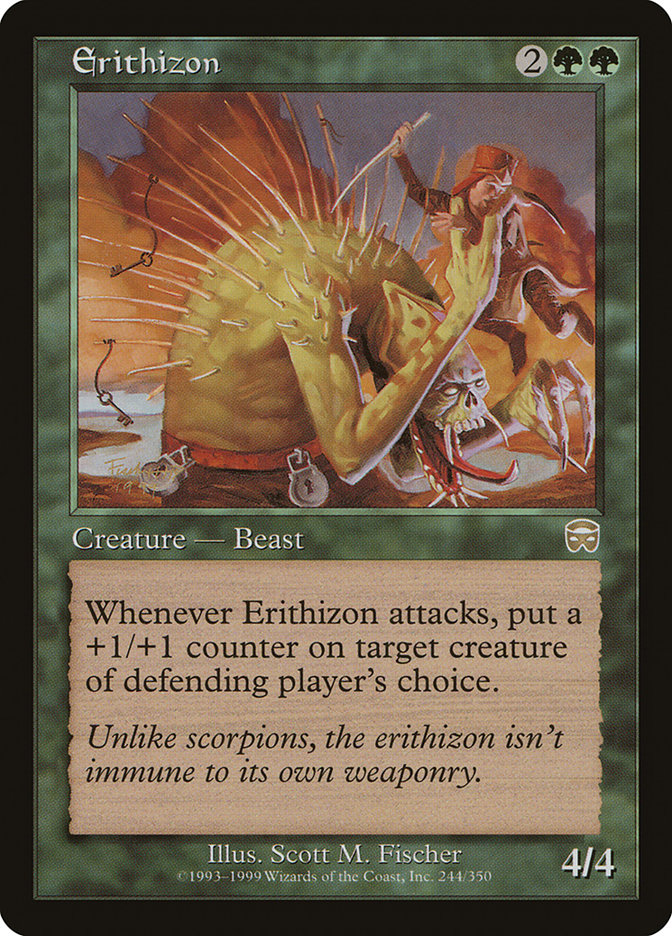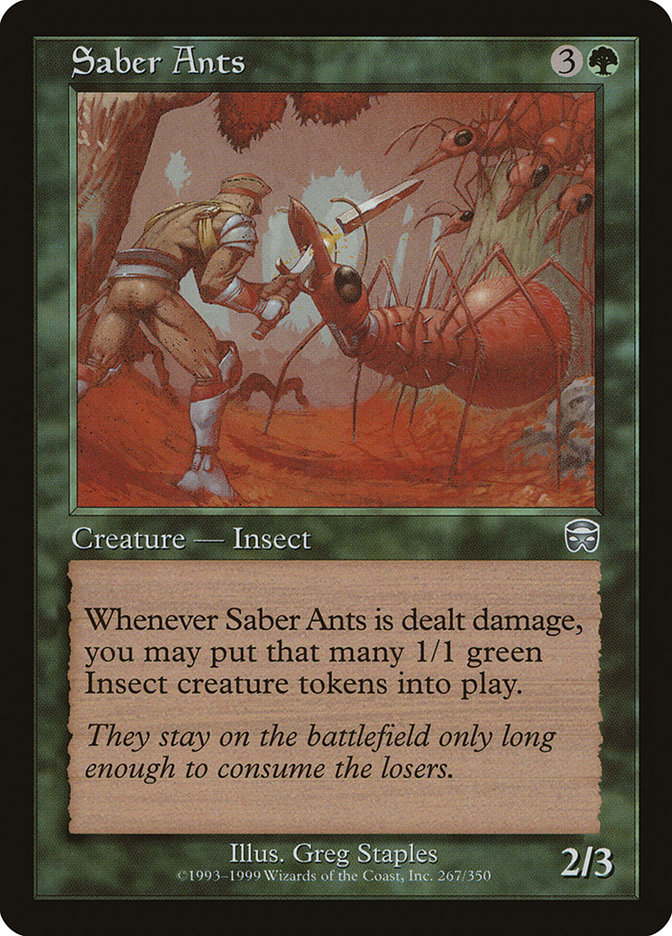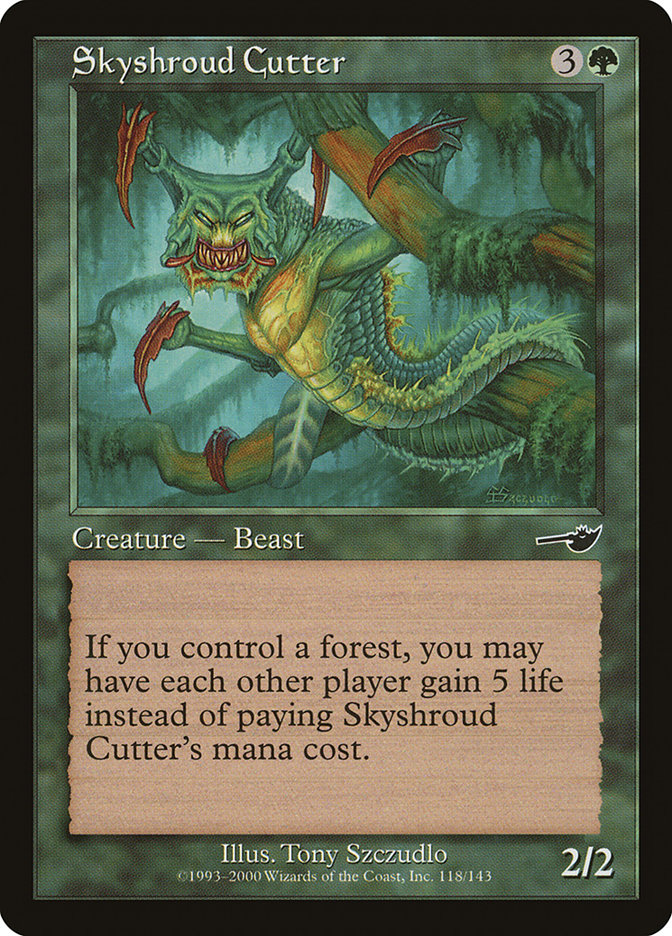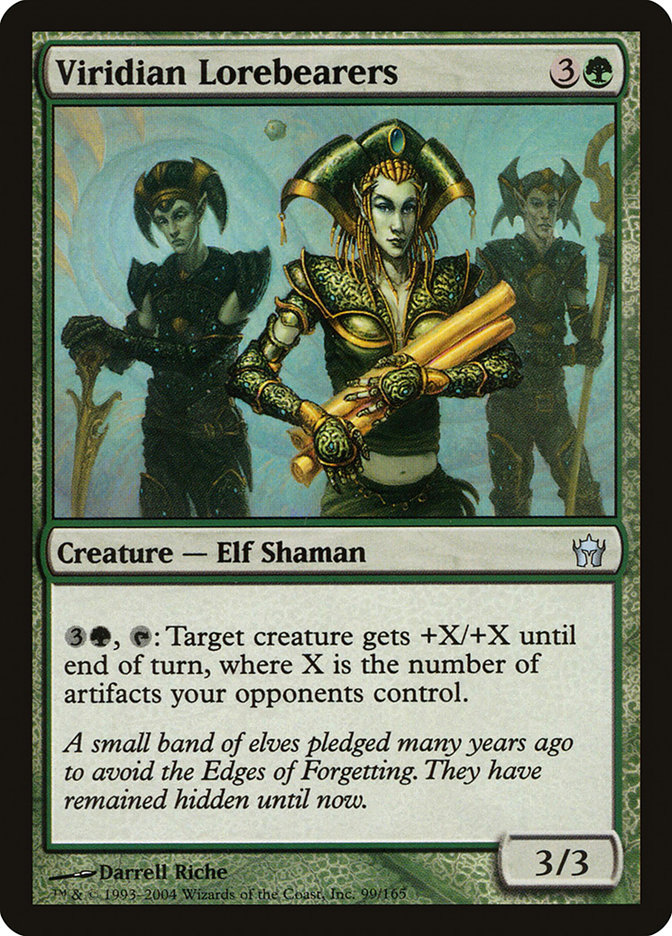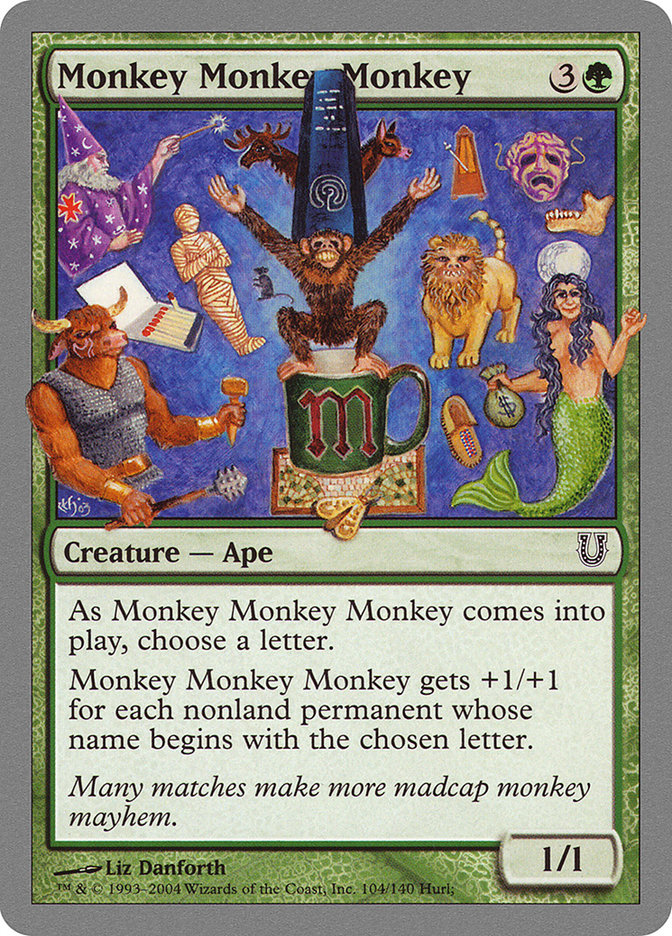Singing Tree MTG Card
| Card sets | Released in 2 setsSee all |
| Mana cost | |
| Converted mana cost | 4 |
| Rarity | Rare |
| Type | Creature — Plant |
| Power | 0 |
| Toughness | 3 |
Text of card
Tap to reduce an attacking creature's power to 0.
Cards like Singing Tree
Singing Tree from the Arabian Nights expansion holds a unique place in Magic: The Gathering lore. Its ability to adjust an attacking creature’s power resonates with abilities seen in cards like Ensnaring Bridge. Ensnaring Bridge restricts attackers based on the number of cards in a player’s hand, leveraging your card management for defensive strategies. While Singing Tree also affects combat, its focus is singular, applying only to one creature and without the hand size requirement.
Tapping into a similar theme of creature control, we look at Maze of Ith. This land card, instead of altering power, simply removes a creature from combat, showcasing a different take on nullifying an opponent’s offense. Unlike Singing Tree which can repeatedly be used to weaken creatures, Maze of Ith offers a complete but temporary resolution each combat phase.
When considering utility and impact on the battlefield, Singing Tree emerges as a historically significant card, cherished for its flavor and utility. It provides players with a level of control over combat that is less common, highlighting the depth of strategy available in Magic: The Gathering.
Cards similar to Singing Tree by color, type and mana cost
Card Pros
Card Advantage: Singing Tree allows players to dictate the pace of combat without spending additional cards. By reducing an attacking creature’s power, it may eliminate the need to trade creatures, effectively preserving card quantity in your hand and on the battlefield.
Resource Acceleration: As a distinctive resource manipulator, Singing Tree can indirectly accelerate your resources by helping maintain a stable board presence, allowing you to commit mana to other spells and strategic developments without worrying about aggressive attacks.
Instant Speed: Although not an instant itself, Singing Tree can impact the game at a similar speed. Its ability to adjust the power of creatures during the declare attackers step mimics the flexibility of instant speed interactions, giving players a dynamic tool for combat surprises and strategic blocks.
Card Cons
Discard Requirement: In the realm of tactical resource management, having to discard a card might leave you at a deficit, struggling to maintain a strong hand throughout the game. This can be especially detrimental in the late stages when each card’s impact is critical.
Specific Mana Cost: Tailored to fit a niche within particular mana assemblies, the Singing Tree card may not seamlessly integrate into every deck. It requires green mana, which, while abundant in nature-themed decks, might not be as readily available in multicolored or off-theme builds.
Comparatively High Mana Cost: With a casting cost that may be seen as steep given the evolving landscape of powerful creatures and abilities, the Singing Tree card poses a strategic decision. Players must weigh its cost against other potential plays that could either advance their board presence or disrupt their opponents’ strategies more effectively.
Reasons to Include in Your Collection
Versatility: The Singing Tree card brings a unique dynamic to deck building, allowing for diverse defensive strategies. Its ability to adjust the power of attacking creatures makes it a valuable addition to any collection that prioritizes adaptability and board control.
Combo Potential: Singing Tree can be a linchpin in combinations that involve modifying creature stats, essentially acting as a force multiplier within creature-based synergy decks. By pairing it with cards that benefit from reduced creature power, you unlock new levels of interaction and potential.
Meta-Relevance: In game environments where aggressive creatures dominate, Singing Tree shines by curtailing their power, potentially disrupting opponent tempo. This relevance to the meta means it can be a powerful sideboard card to adjust your strategy against common threats.
How to Beat Singing Tree
Overcoming the quirks of the Singing Tree card can be a strategic hurdle for many players. This vintage card from Magic: The Gathering’s Arabian Nights set can tamp down even the most powerful creature’s attack, making an aggressive strategy seem futile. Unlike more common damage spells or combat tricks, the Singing Tree adjusts a creature’s attack power, which can be a persistent nuisance throughout the game.
However, the tree’s influence is not insurmountable. One effective tactic is to utilize removal spells that target enchantments or lands, such as Naturalize or Ghost Quarter, to uproot it entirely from the battlefield. Additionally, relying on abilities that aren’t dependent on attack power, such as those found on cards with impact damage or life drain, renders the tree’s effect moot. Alternatively, engaging the Singing Tree in combat with a creature possessing a “must be blocked” mechanic can trim it down quickly.
In essence, with the right cards and a well-thought-out approach, triumphing over Singing Tree becomes a manageable task. Adjusting your game plan to incorporate removal or indirect damage sources is key to bypassing this arboreal obstacle and claiming victory.
Where to buy
If you're looking to purchase Singing Tree MTG card by a specific set like Arabian Nights and Masters Edition, there are several reliable options to consider. One of the primary sources is your local game store, where you can often find booster packs, individual cards, and preconstructed decks from current and some past sets. They often offer the added benefit of a community where you can trade with other players.
For a broader inventory, particularly of older sets, online marketplaces like TCGPlayer, Card Kingdom and Card Market offer extensive selections and allow you to search for cards from specific sets. Larger e-commerce platforms like eBay and Amazon also have listings from various sellers, which can be a good place to look for sealed product and rare finds.
Additionally, Magic’s official site often has a store locator and retailer lists for finding Wizards of the Coast licensed products. Remember to check for authenticity and the condition of the cards when purchasing, especially from individual sellers on larger marketplaces.
Below is a list of some store websites where you can buy the Singing Tree and other MTG cards:
 BUY NOW
BUY NOW BurnMana is an official partner of TCGPlayer
- eBay
- Card Kingdom
- Card Market
- Star City Games
- CoolStuffInc
- MTG Mint Card
- Hareruya
- Troll and Toad
- ABU Games
- Card Hoarder Magic Online
- MTGO Traders Magic Online
See MTG Products
Printings
The Singing Tree Magic the Gathering card was released in 2 different sets between 1993-12-17 and 2007-09-10. Illustrated by Rob Alexander.
| # | Released | Name | Code | Symbol | Number | Frame | Layout | Border | Artist |
|---|---|---|---|---|---|---|---|---|---|
| 1 | 1993-12-17 | Arabian Nights | ARN | 54 | 1993 | Normal | Black | Rob Alexander | |
| 2 | 2007-09-10 | Masters Edition | ME1 | 130 | 1997 | Normal | Black | Rob Alexander |
Legalities
Magic the Gathering formats where Singing Tree has restrictions
| Format | Legality |
|---|---|
| Oldschool | Legal |
| Commander | Legal |
| Legacy | Legal |
| Paupercommander | Restricted |
| Oathbreaker | Legal |
| Vintage | Legal |
| Duel | Legal |
| Predh | Legal |
Rules and information
The reference guide for Magic: The Gathering Singing Tree card rulings provides official rulings, any errata issued, as well as a record of all the functional modifications that have occurred.
| Date | Text |
|---|---|
| 2005-11-01 | Changes creature’s current power to zero (as opposed to giving it -X/-0, like before) but does not prevent raising it after the Tree has been used on it. |
| 2009-10-01 | You apply power/toughness changing effects in a series of sublayers in the following order: (a) effects from characteristic-defining abilities; (b) effects that set power and/or toughness to a specific number or value; (c) effects that modify power and/or toughness but don’t set power and/or toughness to a specific number or value; (d) changes from counters; (e) effects that switch a creature’s power and toughness. This card’s effect is always applied in (b), which means that effects applied in sublayer (c), (d), or (e) will not be overwritten; they will be applied to the new value. |
